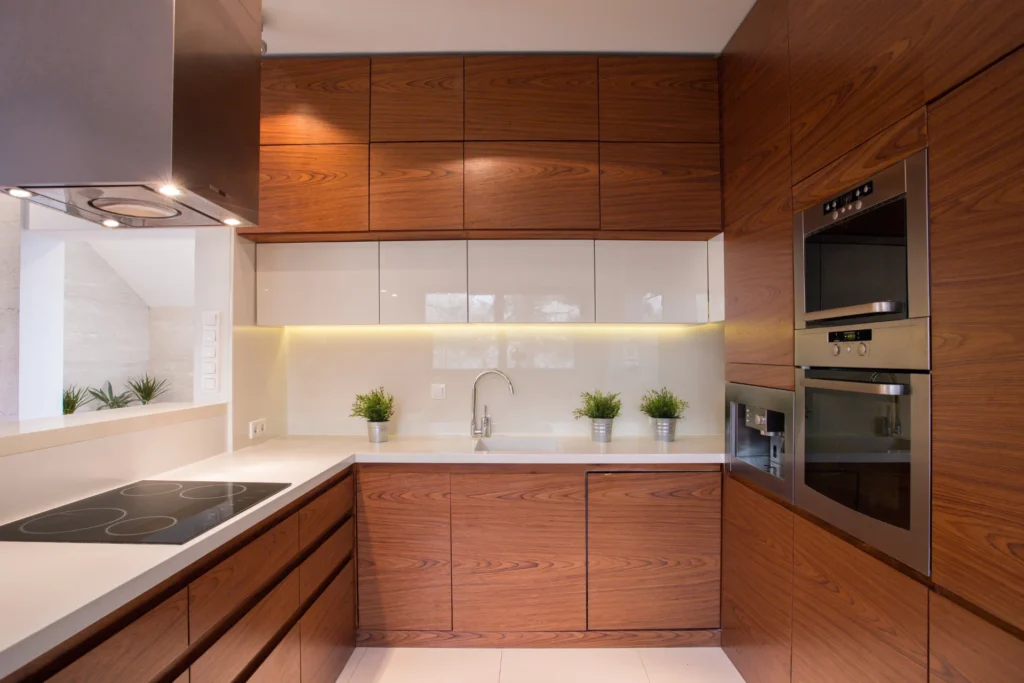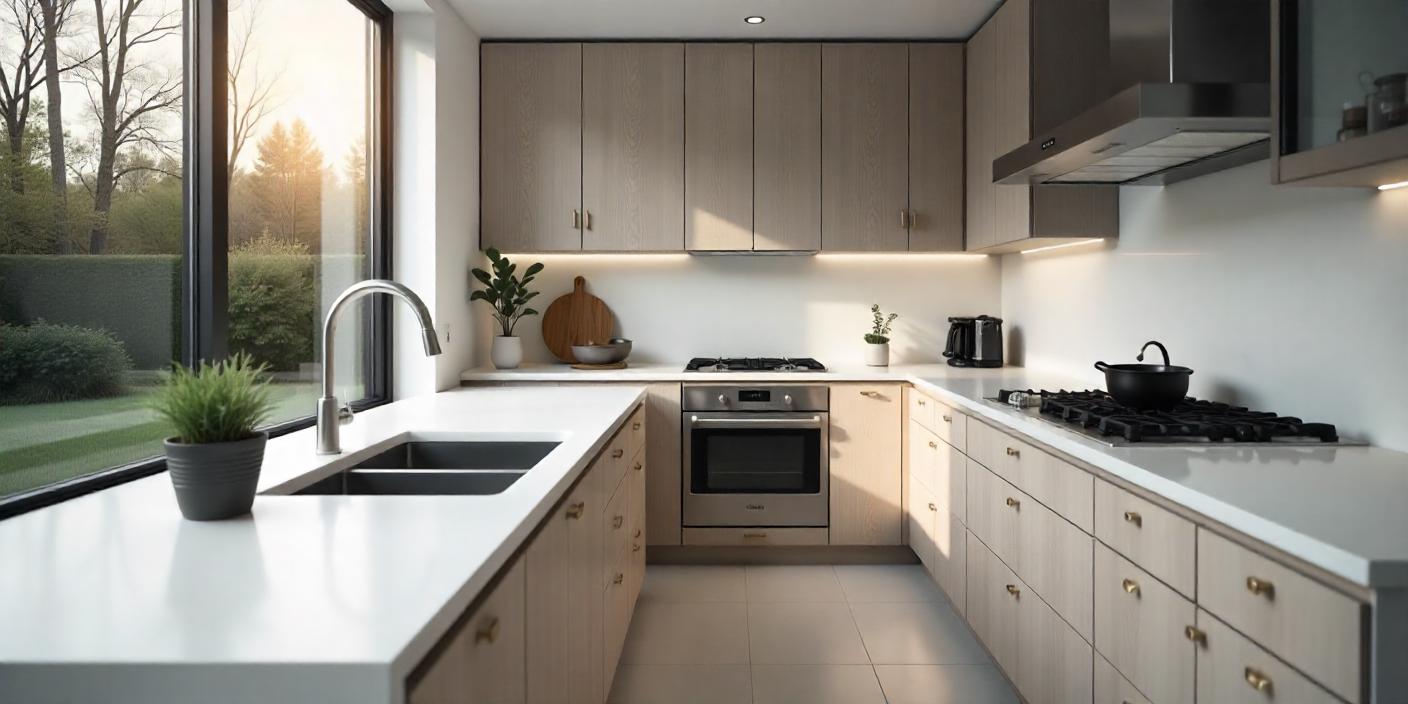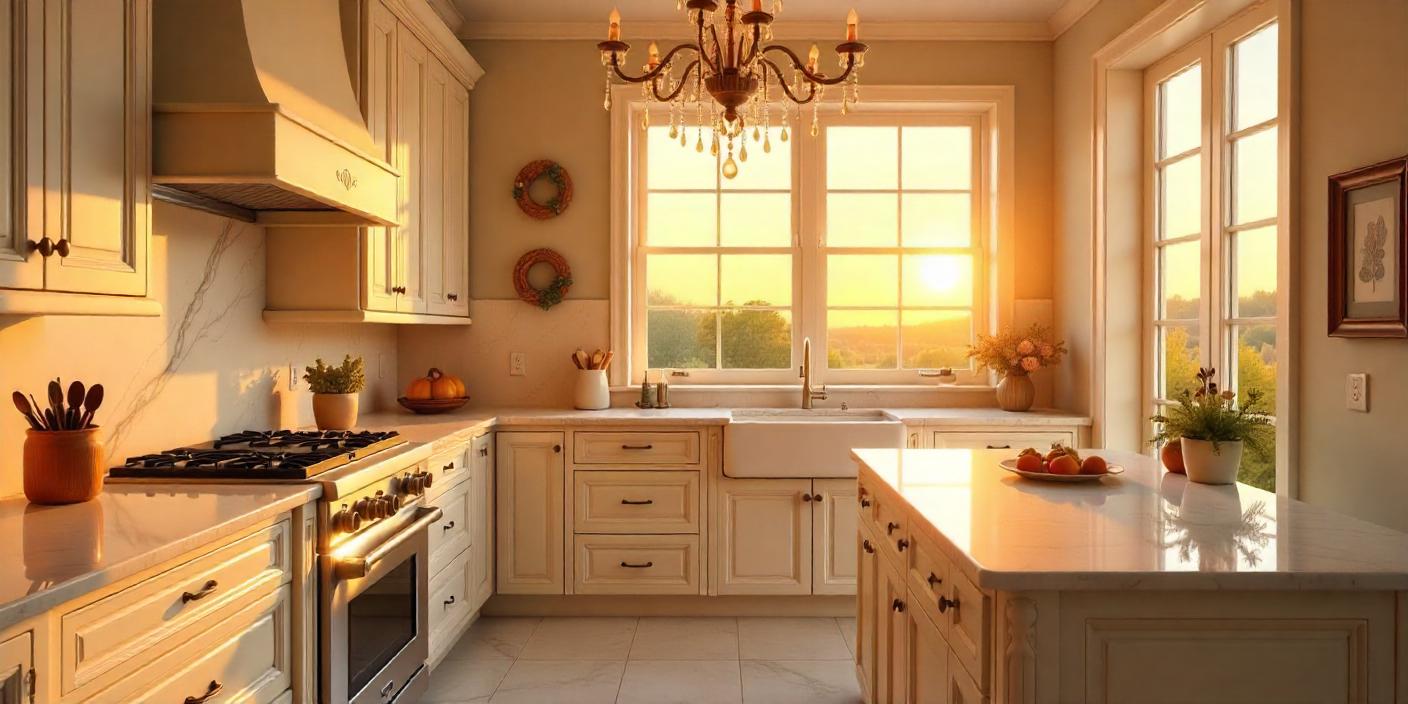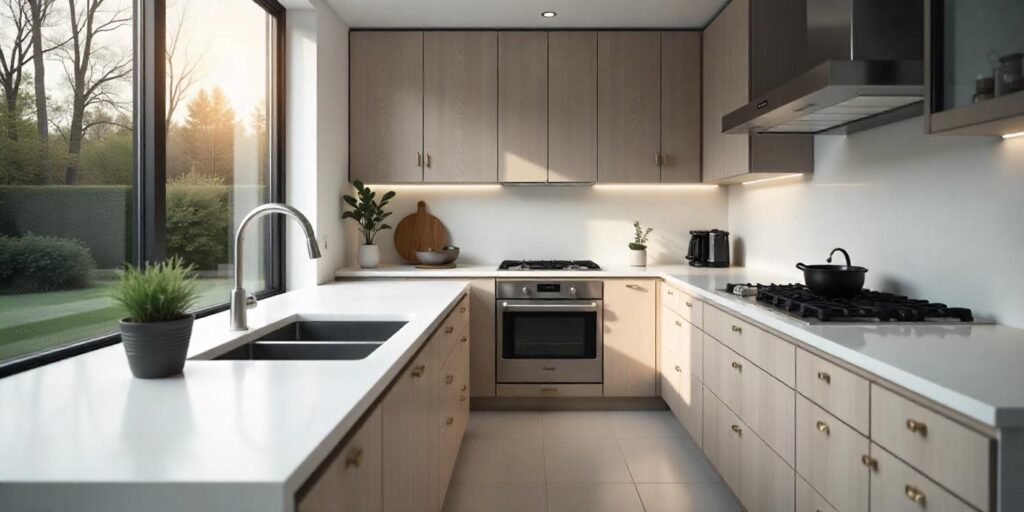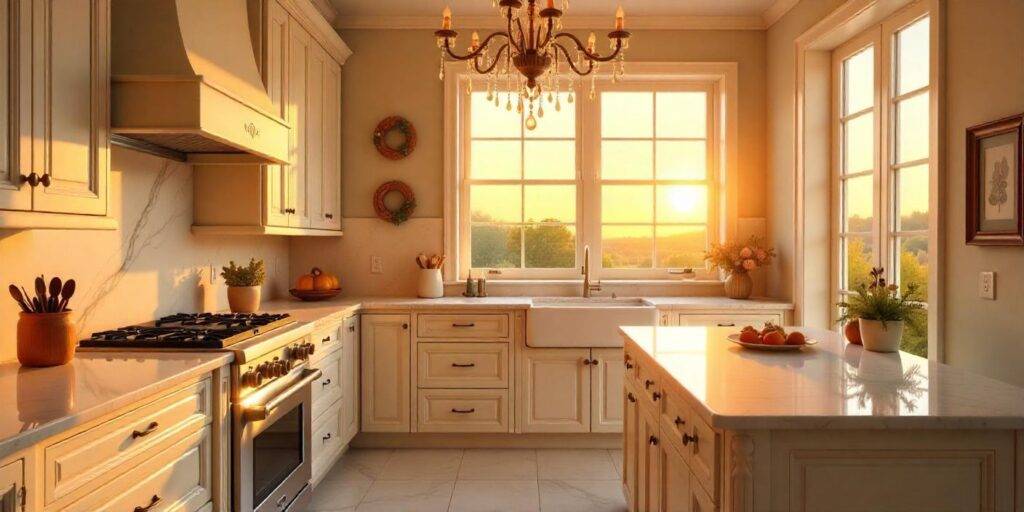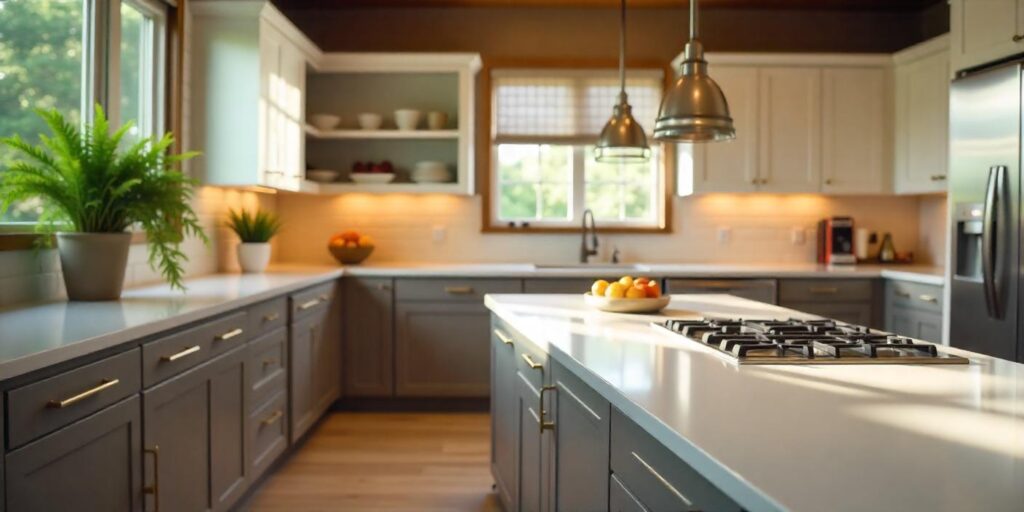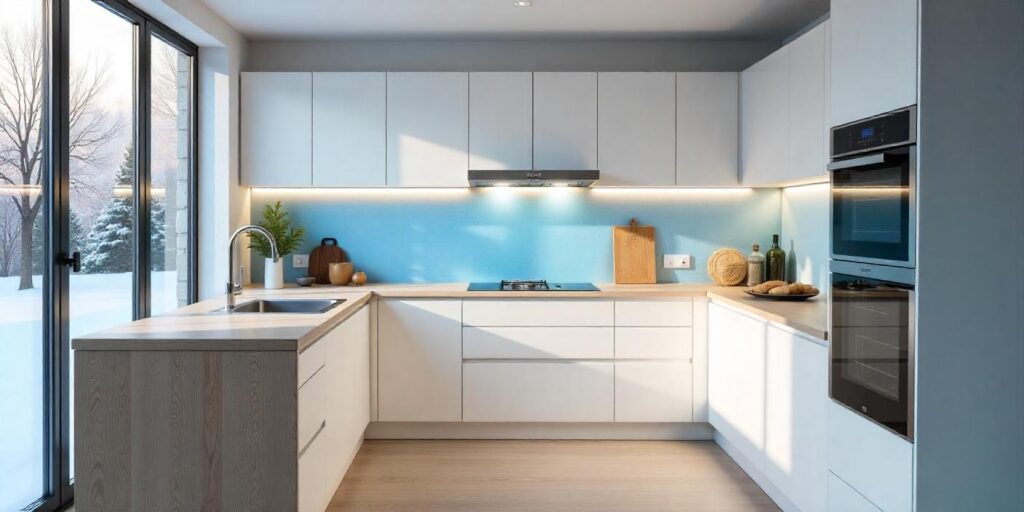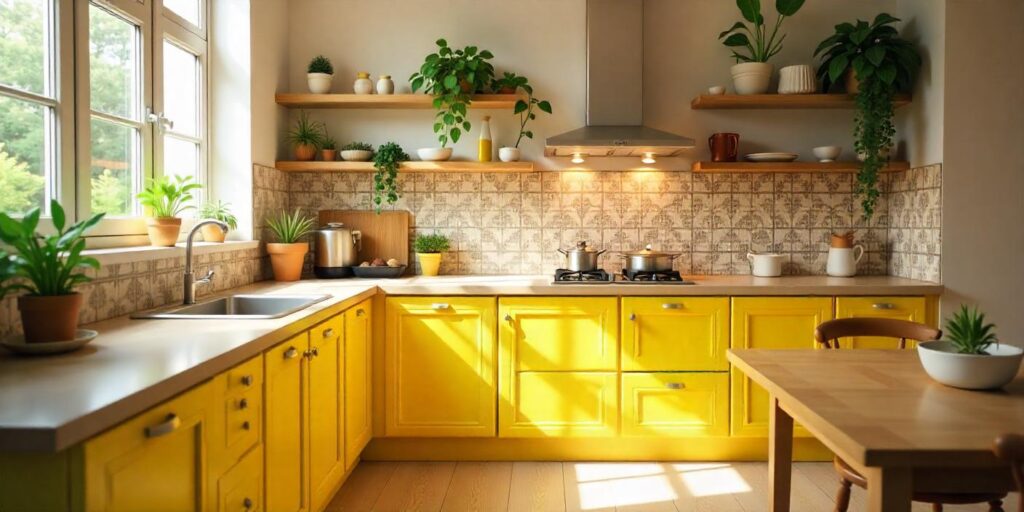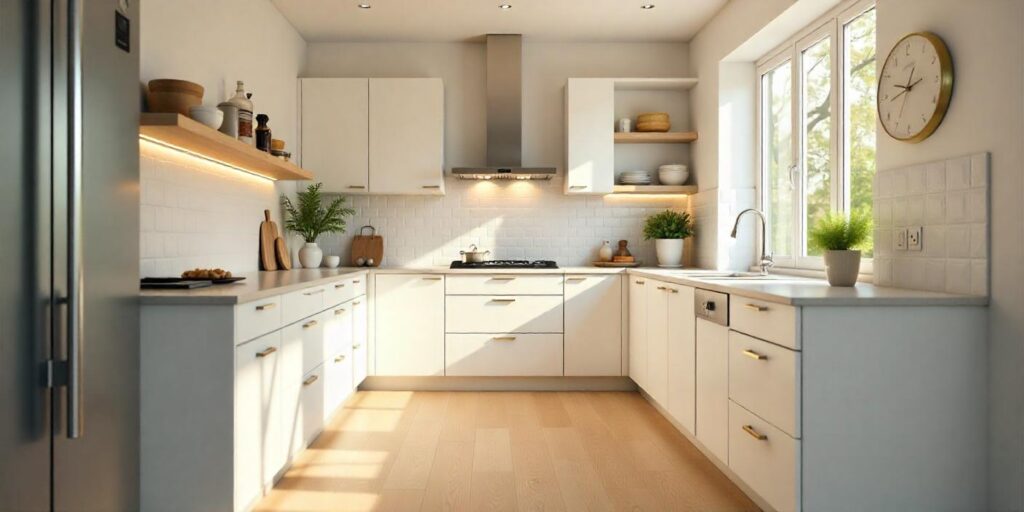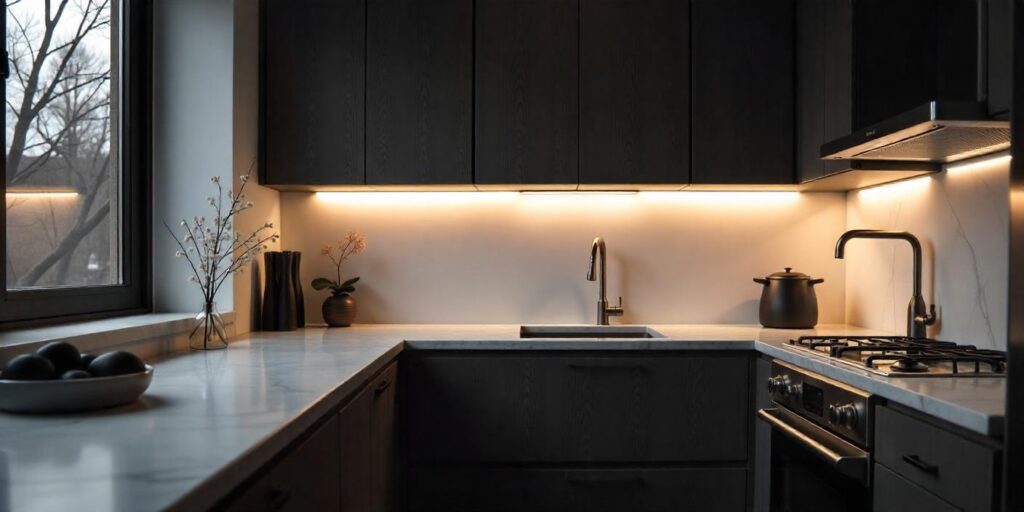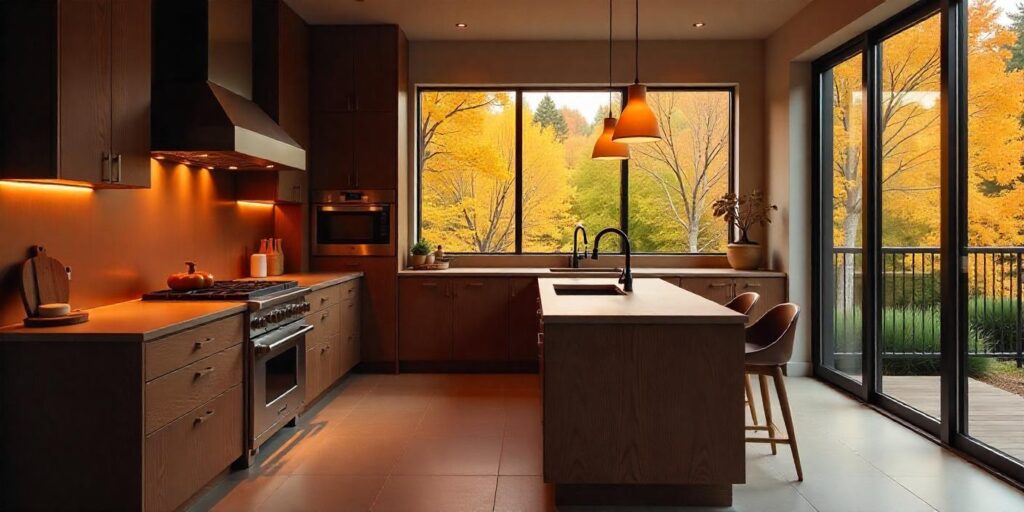The kitchen is an important space in our home, and the right kitchen design is important for a smooth and enjoyable cooking experience. It should reflect your style while meeting your everyday needs.
The kitchen design should not only be something that you love, but it should also be functional and practical. When cooking in the kitchen, the workflow should be smooth without disrupting you.
Does the kitchen design matter? Yes, it does. There are many things to consider besides just being a nice design that matches your other space. In this article, we will explore five crucial factors to consider when choosing a kitchen design that suits your lifestyle and preferences.
Factors When Choosing Kitchen Design #1 - Layout Matters
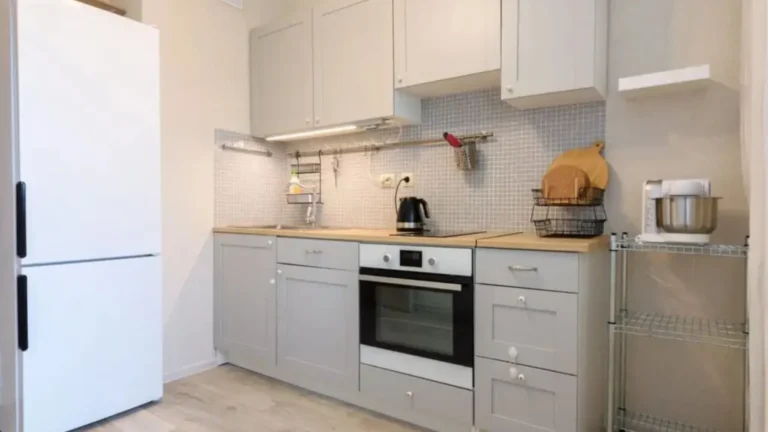
Your kitchen layout is the foundation upon which the entire design is built. It is all about functionality, workflow, and how well the space accommodates your needs. There are many layouts you can choose from.
The L-shaped kitchen layout is popular for smaller spaces or open-flow plans. It consists of two perpendicular walls or cabinets, forming an “L” shape. It minimizes the need for excessive movement.
The U-shaped kitchen layout is a top choice if you have more space to spare. It consists of cabinets and countertops along three adjacent walls, forming a “U” shape. You can even incorporate an island in the center for additional workspace and seating if you have enough space.
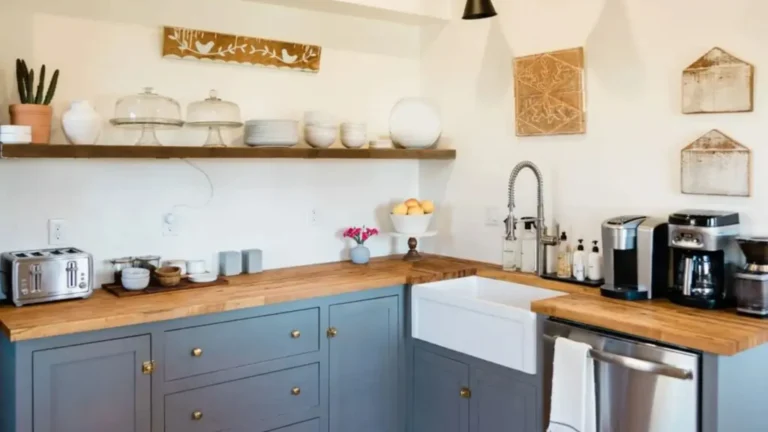
Gallery kitchen is another option that is characterized by parallel countertops and cabinetry. This layout is often found in apartments or smaller homes. It can minimize the distance between appliances, allowing for a streamlined cooking process. If it is designed well, it can be visually appealing, possibly using contrasting colors and textures to create an inviting space.
These are some of the common kitchen layouts. The kitchen layout should align with your lifestyle, kitchen space size, and cooking preferences.
Factors When Choosing Kitchen Design #2 - Style And Aesthetics
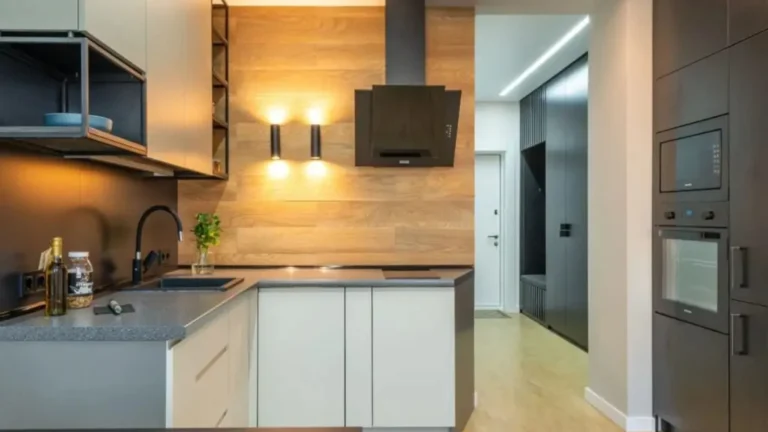
Your kitchen’s style and aesthetics go beyond mere decoration. They define the very personality of your culinary space. When choosing the right style, it’s essential to consider not only your taste but also how it harmonizes with the overall design of your home.
One of the kitchen styles is the traditional kitchen. It exudes timeless elegance and charm. Intricate detailing on cabinet doors and drawers is a hallmark of traditional kitchens. Raised panels, crown molding, and decorative hardware are common elements. It often incorporates natural materials like wood and stone for countertops and flooring. Many traditional kitchens have separate, formal dining areas adjacent to the kitchen.
Rustic style is also another popular kitchen style that embraces a warm, cozy, and inviting ambiance reminiscent of a country cottage. It often uses rough-hewn wood, stone, and brick to create a rustic, earthy feel. Another feature of this style is the open shelves, which can showcase dinnerware.
Factors When Choosing Kitchen Design #3 - Storage Solutions
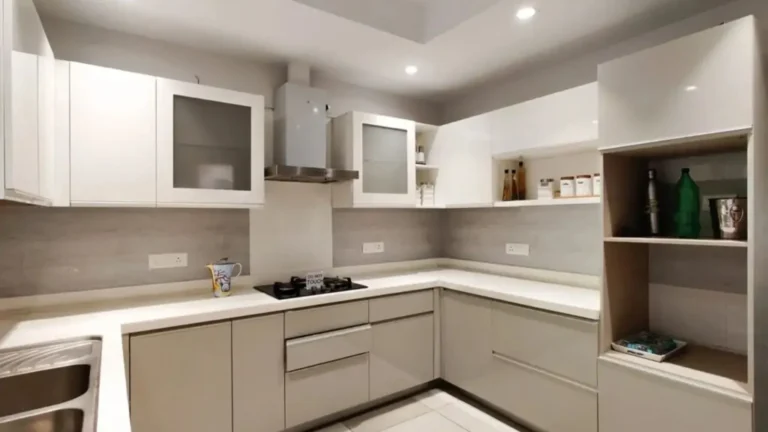
Efficient storage solutions are the backbone of a well-organized and functional kitchen. A clutter-free kitchen looks appealing and makes daily cooking and meal preparation more enjoyable.
Base cabinets are the standard cabinets that line the lower portion of your kitchen. Consider options like pull-out drawers or deep cabinets for pots and pans. Wall-mounted cabinets maximize vertical space and are ideal for storing dishes, glassware, and smaller appliances. Open shelves can be both functional and decorative, allowing you to display dishes, cookbooks, and decorative items.
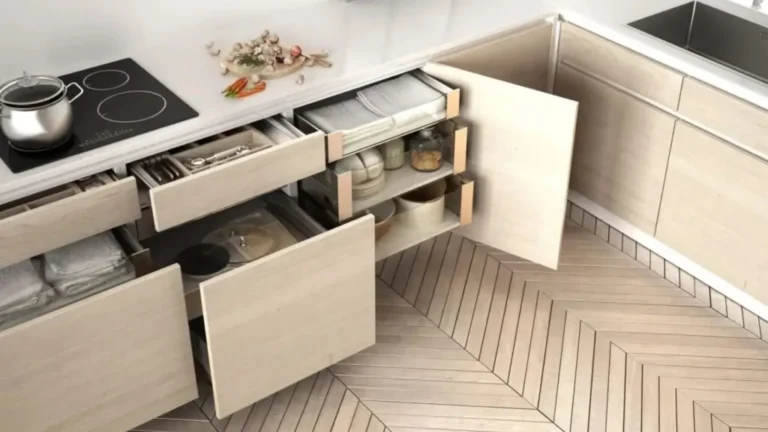
Drawers are also a good storage option. Deep drawers are perfect for storing pots, Pans, and large kitchen utensils. Consider dividers to keep items organized. Keep your knives, forks, and spoons neatly arranged in cutlery trays within drawers. They come in various sizes and materials to match your kitchen style.
The key to effective kitchen storage is thoughtful planning and organization. Consider your cooking habits, kitchen size, and specific needs when choosing storage solutions.
Factors When Choosing Kitchen Design #4 - Appliances And Fixtures
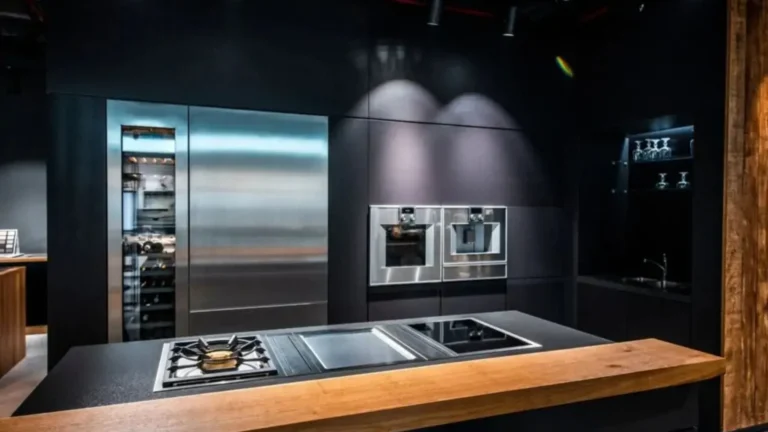
Appliances and fixtures are the functional elements that breathe life into your kitchen. Choosing the right ones can significantly impact your culinary space’s efficiency, convenience, and aesthetic appeal.
Decide between a traditional range with an oven or a separate cooktop and wall oven. Consider your cooking style and space constraints. Refrigerator is another consideration. Choose a refrigerator size and configuration that suits your household’s needs, whether a side-by-side or bottom-freezer model.
Lighting is an essential fixture in your kitchen space. Consider installing under-cabinet lighting to illuminate countertops and workspaces effectively. Pendant lights or chandeliers above the kitchen island or dining area to create a warm and inviting atmosphere.
You can also consider maximizing the benefits you can get from smart appliances. Appliances with voice-activated controls can make tasks more convenient. Smart ovens can be controlled remotely, allowing you to preheat or adjust cooking settings from your smartphone.
Factors When Choosing Kitchen Design #5 - Budget And Timeline

Creating a budget and timeline for your kitchen renovation project is essential to ensure your dream kitchen becomes a reality without unexpected setbacks or financial stress.
Take a close look at your financial situation and determine how much you can comfortably allocate to your kitchen project without straining your overall finances. Setting aside a contingency fund of around 10-20% of your budget is wise to account for unexpected expenses that may arise during the project. Get multiple quotes from multiple sources to get competitive prices.
Discuss your project with contractors, designers, or architects to get a realistic estimate of how long the renovation or design process will take. If possible, check with them if it is possible to finish within the period you want.
Be prepared for changes during the renovation process as unforeseen issues, such as hidden structural problems or design adjustments, may arise. Be prepared to adjust your budget and timeline accordingly. Maintain open and regular communication with your contractors and design professionals. This can help address issues promptly and avoid delays.
Sign Up For Kitchen Design Ideas
Join over 5,000 homeowners subscribed to our newsletter!

